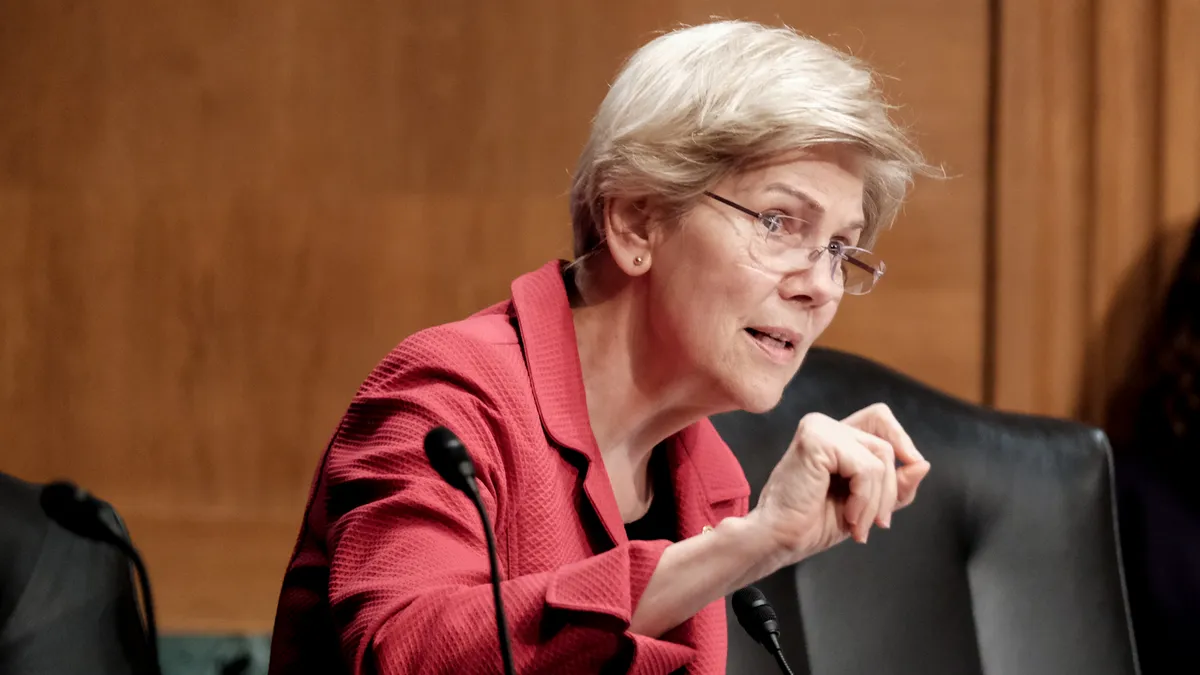Klarna was gearing up this month for a big marketing blowout to celebrate the milestone of attracting 150 million consumers, but then another watershed moment arrived: a 10% cut in the Swedish buy now-pay later company’s workforce.
The Stockholm-based company employs 7,000, according to Klarna Spokesperson Filippa Bolz, so the cuts would eliminate 700 workers. Bolz didn't comment on which types of workers or what locations would be most affected.
Klarna has offices in major cities in Europe, North America and Australia, including in the American cities New York, San Francisco and Austin, Texas, as well as in London, Paris, Berlin and Sydney.
Klarna CEO Sebastian Siemiatkowski broke the news to employees on Monday in a note, saying “the senior leaders of Klarna have made some really tough decisions.” Then he explained how 10% of workers could be cut.
"We have re-evaluated our organizational setup to make sure we can continue to deliver on our ambitious targets," he said. “It saddens me to say that as a result of this, approximately 10% of our colleagues and friends across all domains in the company will be impacted,” Siemiatkowski said in the note published on May 23 by the company.
Siemiatkowski blamed a host of external factors for the bad news that led Klarna to veer off course. “When we set our business plans for 2022 in the autumn of last year, it was a very different world than the one we are in today,” the CEO said. “Since then, we have seen a tragic and unnecessary war in Ukraine unfold, a shift in consumer sentiment, a steep increase in inflation, a highly volatile stock market and a likely recession. All of which have marked the beginning of a very tumultuous year.”
Klarna provides financing services to consumers that allow them to take home goods immediately and pay for them over time, usually about six weeks. Klarna has been growing at a fast clip since its founding in 2005 and notes on its profile at the social media site LinkedIn that it's "Europe’s highest valued private fintech company." In addition to the 150 million consumers it has collected, Klarna says it has ties to 400,000 merchants that provide its financing.
Siemiatkowski didn’t lay any blame for the headcount reduction with the business itself. It was the external factors that forced the company to take action in response to factors that don’t appear to be receding, he suggested. “What we are seeing now in the world is not temporary or short-lived, and hence we need to act,” Siemiatkowski said.
Still, Klarna isn’t unacquainted with business challenges. Like other BNPL companies, Klarna has posted significant operating losses for years. Klarna said its operating losses for the 2021 calendar year widened to 6.58 billion krona, or $688.85 million, from 1.63 billion krona in 2020, Reuters reported in February.
More recently, The Wall Street Journal reported last week that Klarna has had difficulty raising the $1 billion in new equity funding that it had targeted, causing the company to mark down its prior valuation as part of the process.
And Bloomberg reported that the company’s borrowing costs are rising, too, as interest rates climb and the spread on some of its floating rate debt widens relative to benchmarks.
Such an inflationary environment could pose additional threats to BNPL providers if their customers, who tend to be younger and have lower credit ratings, begin to default on their debts or incur late fees.
The BNPL providers market their services as interest-free to consumers and make their revenue from fees charged to the merchants, but if customers don't make their payments on time they incur the late fees. The category's financing could swell to $995 billion by 2026, the consulting firm Juniper Research predicts.
Mark Flamme, a managing director at the consulting firm AlixPartners, earlier this year questioned the long-term viability of the BNPL industry. He suspects consumers missing payments will become a bigger problem over time.
“There’s a real risk that consumers overextend themselves,” Flamme said. “I can go to 15 different websites (and) I could get 15 different short-term loans from a number of different players.”
Siemiatkowski also didn’t mention how competition has mounted in recent years. For instance, BNPL rival Afterpay now benefits from the backing of its new larger parent company Block, which also owns Square, and the competitor Zip has been absorbing small players, including Sezzle and Quadpay, to build its market share in the U.S.
Still, the CEO sought to reassure his audience that the company isn’t suffering. “I want to highlight that Klarna continues to hold a strong position in the market,” he said. “We have a diversified business that distinguishes us from the competition. Therefore I do remain relentlessly optimistic about Klarnas’s (sic) future, despite what we now need to go through.”
He said he was pleased that the majority of “Klarnauts,” as he calls the company’s employees, won’t be affected by the reorganization. For those who were not so lucky, the CEO laid out the process by which they will be informed in the “next few days.”
“We are fully dedicated to provide clarity and support for all Klarnauts through this challenging time, as fast as humanly possible,” Siemiatkowski said.




















